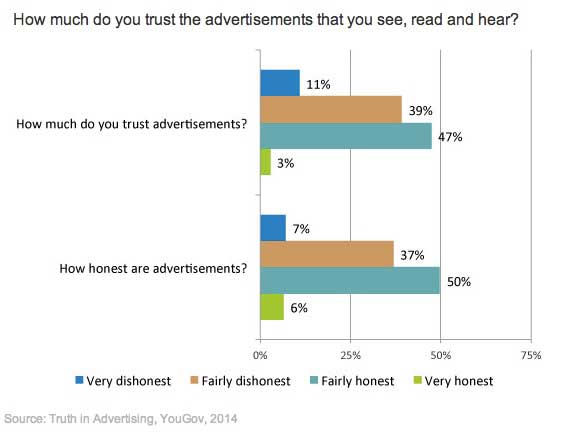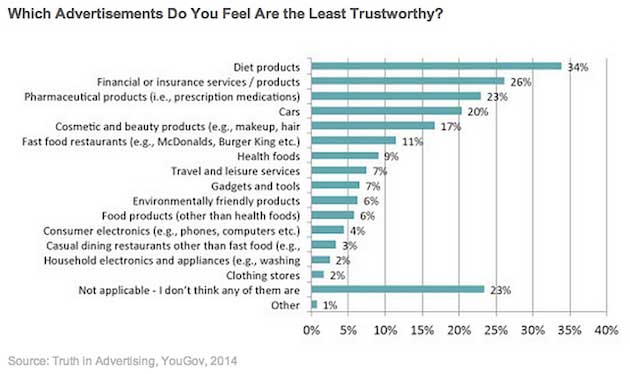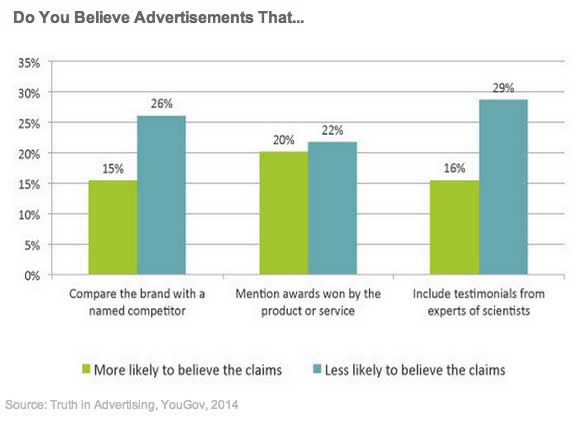Half of Americans say they don't trust advertisements, and 44% say they think ads are intentionally dishonest, according to a recent poll from YouGov.
Moreover, most Americans (58%) say there should be stronger requirements for proving claims in advertising.
Trust in advertising appears to be dependent on education, YouGov found: 65% of Americans with postgraduate degrees say advertising cannot be trusted, compared with 44% of those with a high school education.
Age plays a role as well: 35-54-year-olds are more likely to trust advertising (58% do) than 18-34-year-olds and those 55+ (only 48% of both groups think advertising can be trusted).

Below, additional key findings from the report, which was based on data from a survey of 987 US adults who see advertisements at least once a month.
Trust by Category
- Advertisements for diet products, financial services, pharmaceuticals, and cars are the least trusted by consumers.
- Ads for restaurants, clothing stores, and household electronics are the most trusted.
- 25% of respondents say they believe advertising claims made by casual dining restaurants (e.g., Applebee's, Chili's, Olive Garden), but only 16% believe those made by fast-food chains.
- Women (23%) are more likely than men (16%) to trust clothing store advertisements, whereas men (17%) are more inclined than women (12%) to believe consumer electronics advertising.

Claims
Tactics such as comparative advertising, citing scientific endorsements, and highlighting awards increase trust with some consumers but actually make a larger number more suspicious:
- 16% of respondents say they are more likely to believe an advertisement that includes the testimonial of a scientist or expert, but 29% say they are less likely to believe these sorts of ads.
- Ads making comparisons with brand competitors are more likely to be believed by 15% of respondents but less likely to be believed by 26%.
- Advertisements that mention awards are more likely to believed by 20% of respondents but less likely to believed by 22%.

About the research: The report was based on data from a survey of 987 US adults who see advertisements at least once a month.




